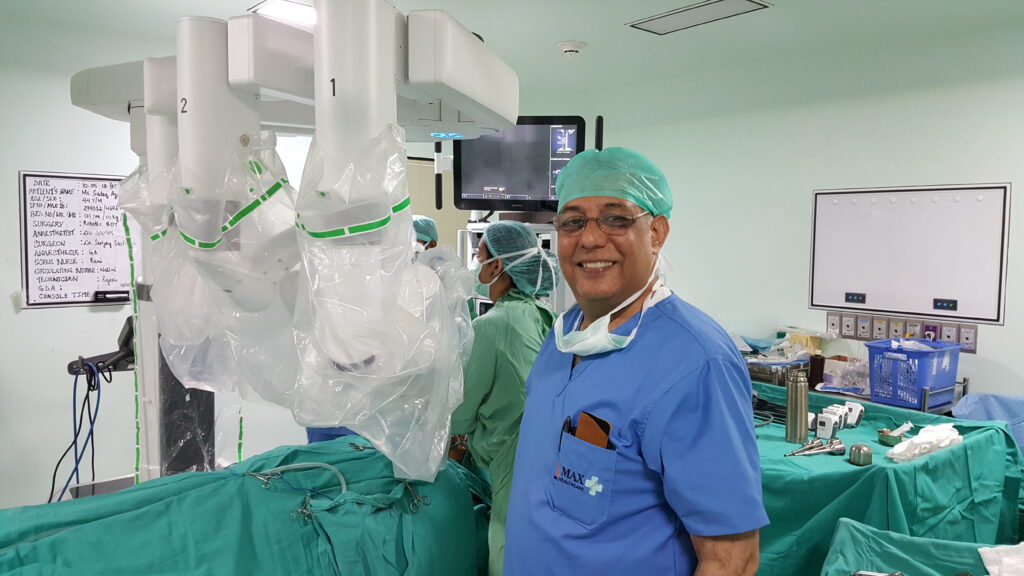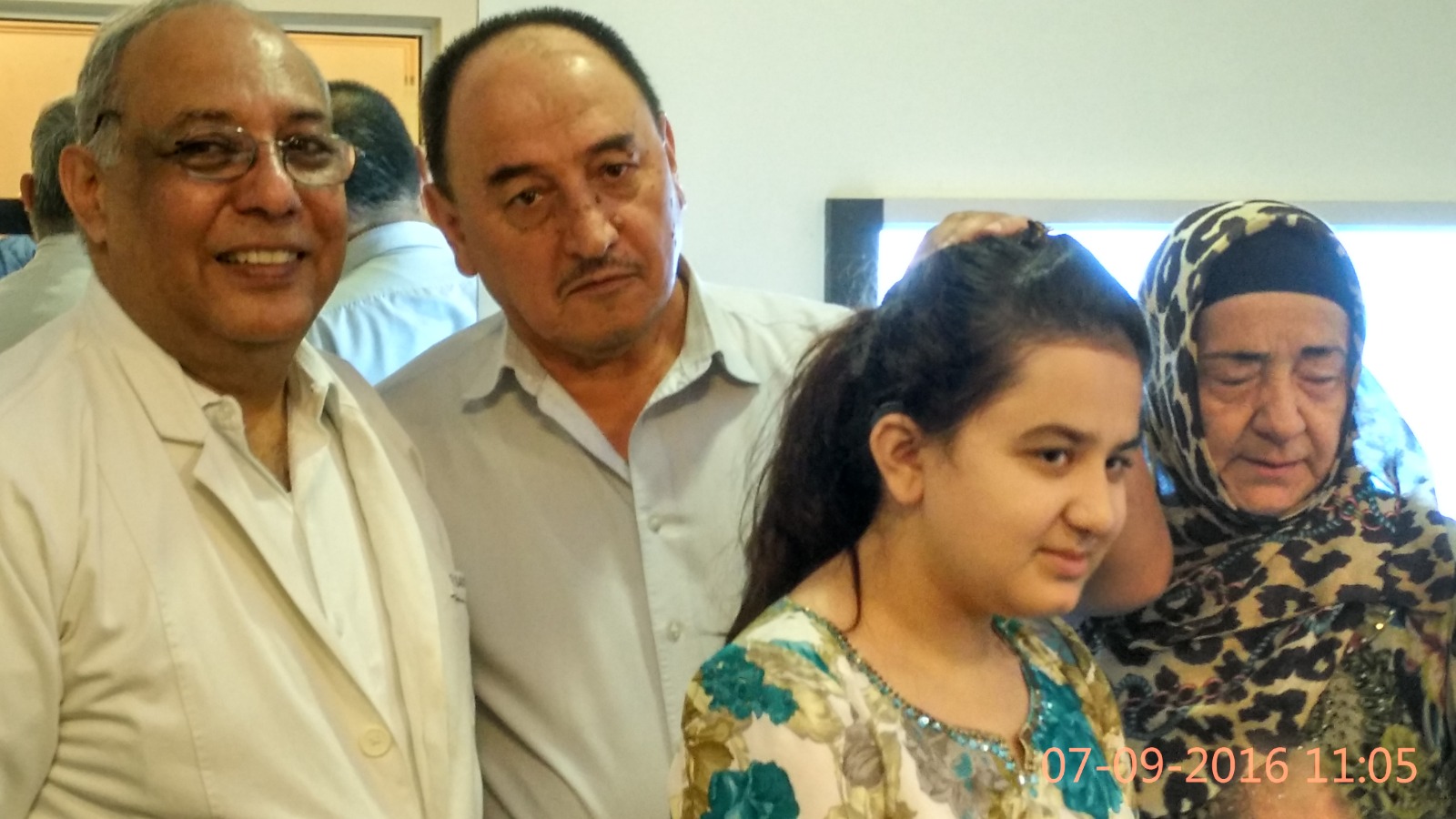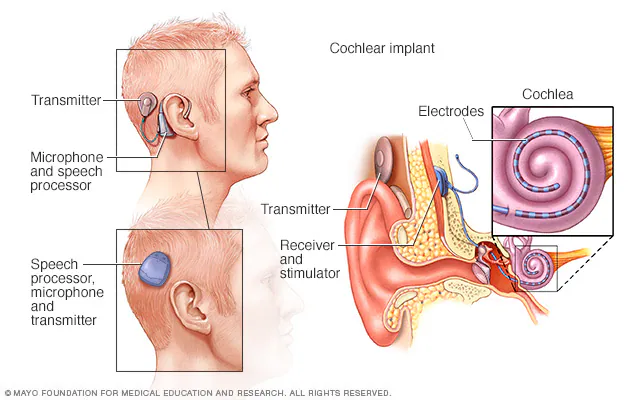



Cochlear Implant Surgeon
A cochlear implant is a device designed to provide valuable hearing to individuals with severe to profound deafness due to damage or destruction of the inner ear hearing organ. It also assists children who are either born deaf or have malformed or underdeveloped inner ears. By directly stimulating the hearing nerve, the cochlear implant sends auditory information to the brain’s hearing centers.
The implant is surgically placed under the skin behind the ear!
Cochlear Implants
This is not a hearing aid but an implantable device, which stimulates the auditory nerve directly with help of intra-cochlear electrodes. The cochlear implant consists of an internal part, which is implanted surgically under the skin behind the ear and its electrode go into the cochlea. Its External part is worn behind the ear.
This is not a hearing aid but an implantable device, which stimulates the auditory nerve directly with help of intra-cochlear electrodes. The cochlear implant consists of an internal part, which is implanted surgically under the skin behind the ear and its electrode go into the cochlea. Its External part is worn behind the ear.
Components
The internal component, which is inserted during a surgical procedure, is made up of an electrode array, a receiver, and a magnet. The electrodes are inserted into the cochlea and the receiver and magnet are set into the bone behind the ear. The external component is made up of a transmitter coil, a microphone, and a speech processor. Both the transmitter coil and microphone are worn behind the ear.

Criteria For Children
There are several criteria which a child must meet in order to be considered an implant candidate. The child must have a severe-to-profound bilateral loss, and receive little or no benefit from hearing aids. Medical and psychological status are also taken into consideration prior to implantation.
Criteria for adults
For adult cochlear implants, candidates typically need severe to profound sensorineural hearing loss, poor speech recognition despite hearing aids, and good general health. They should have realistic expectations and motivation for post-surgery therapy. Evaluations include audiological testing and, sometimes, psychological assessments to ensure suitability and potential benefit.

The operation, post implantation and ongoing effects
The device is surgically implanted under general anesthesia and the operation usually takes from 1.5 to 3 hrs. The patient normally goes home the same or the next day after the surgery, although some CI recepients stay from 1-2 days.
After 1-4 weeks of healing (the wait is usually longer in childern than adults), the implant is “activated” by connecting an external sound processor to the internal device via a magnet. Initial results vary widely, and post implantation therapy is required as well as time for the brain to adapt to new sounds. The participation of the child’s family in working on spoken language development is considered to have even more important than therapy, because the family can aid development by participating actively and continually in the child’s therapy, making hearing and listening interesting, talking about objects and actions and encouraging the child to make sounds and form words.
Benefits
Cochlear implant will provide for the ability to hear and detect the presence of sound.
Most patients will hear speech and environmental sound and see an improvement in lipreading skills.
Many patients will see improvements beyond the minimum, including some understanding of speech without visual cues, and even the ability to use the telephone.
Cochlear implants can improve hearing in people with severe hearing loss who are no longer helped by using hearing aids.
Cochlear implants can improve their communication and quality of life.
Service Available
New MRI compatible (3 tesla) are now available.
We are pleased to announce that we have successfully completed India’s first 3D cochlear Implant with 3.0 Telsa compatibility.
Earlier generations of Cochlear implants were not compatible with MRI machines. They had to be removed surgically if the patient needed a MRI for any ailment.
DrSanjay Sachdeva
Dr. Sanjay Sachdeva, a distinguished Senior ENT Consultant, is widely recognized for his expertise in treating a diverse range of ear, nose, and throat conditions.
Contact Info
9910317286
9810153116
entdrsachdeva25@gmail.com